In the dynamic world of the automotive industry, the efficient transportation of auto parts is crucial for maintaining production schedules and ensuring seamless operations. FCL Shipping, or Full Container Load Shipping, has emerged as a preferred solution for businesses looking to move large volumes of goods securely and cost-effectively. By utilizing an entire shipping container exclusively for one shipper’s cargo, FCL offers numerous advantages, including enhanced security, reduced damage risk, and faster transit times. This comprehensive approach not only streamlines the shipping process but also supports manufacturers in meeting the demands of a global supply chain. In this guide, we will explore the benefits of FCL shipping for auto parts, key considerations for successful shipments, and strategies to overcome common challenges in the freight forwarding landscape. Whether you’re a seasoned importer or new to the logistics scene, understanding the intricacies of FCL shipping can significantly impact your business’s success.
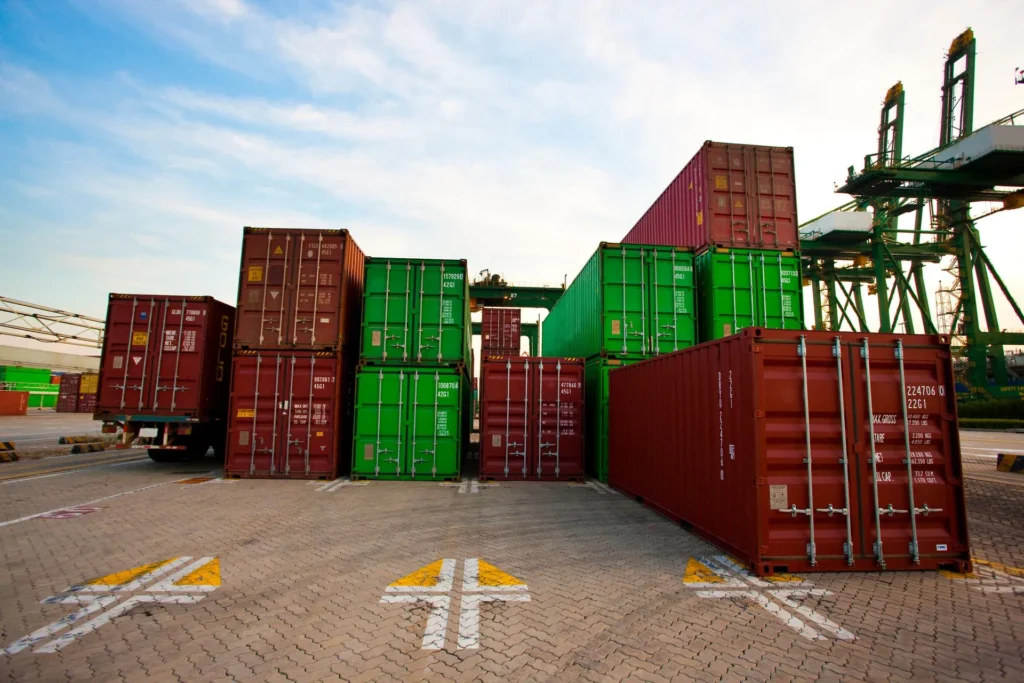
Introduction to FCL Auto Parts Shipping
What is FCL Shipping?
FCL Shipping, or Full Container Load Shipping, refers to the transportation of cargo in an entire shipping container, which is exclusively reserved for a single shipper’s goods. This method is particularly advantageous when large volumes of products need to be shipped, as it allows for greater control over the shipment and reduces the overall cost per unit of cargo. Typically utilized for various types of cargo, FCL is especially beneficial in the automotive industry, where auto parts are often bulky and require specialized handling.
The shipping process begins when the shipper fills a container with their products, which are then transported to the port for loading onto a vessel. This method not only provides logistical efficiency but also streamlines the customs clearance process, as the cargo is easier to track and manage compared to less-than-container load (LCL) shipments.
Importance of FCL for Auto Parts
The importance of FCL shipping for auto parts cannot be overstated. The automotive sector demands precision, speed, and reliability, making FCL an ideal choice for transporting essential components such as engines, transmission systems, and chassis. The ability to ship large volumes at once helps manufacturers meet production schedules, minimizing downtime and ensuring that assembly lines operate smoothly. Moreover, FCL shipping is crucial in maintaining the integrity of auto parts, as the dedicated container space reduces the risk of damage that can occur when shipments are mixed with other clients’ goods.
Additionally, the global nature of the auto parts supply chain, especially imports from regions like China, means that businesses must rely on efficient shipping solutions. FCL not only simplifies logistical operations but also enhances relationships with suppliers and customers, as timely deliveries directly impact overall satisfaction.
Benefits of FCL Shipping for Auto Parts
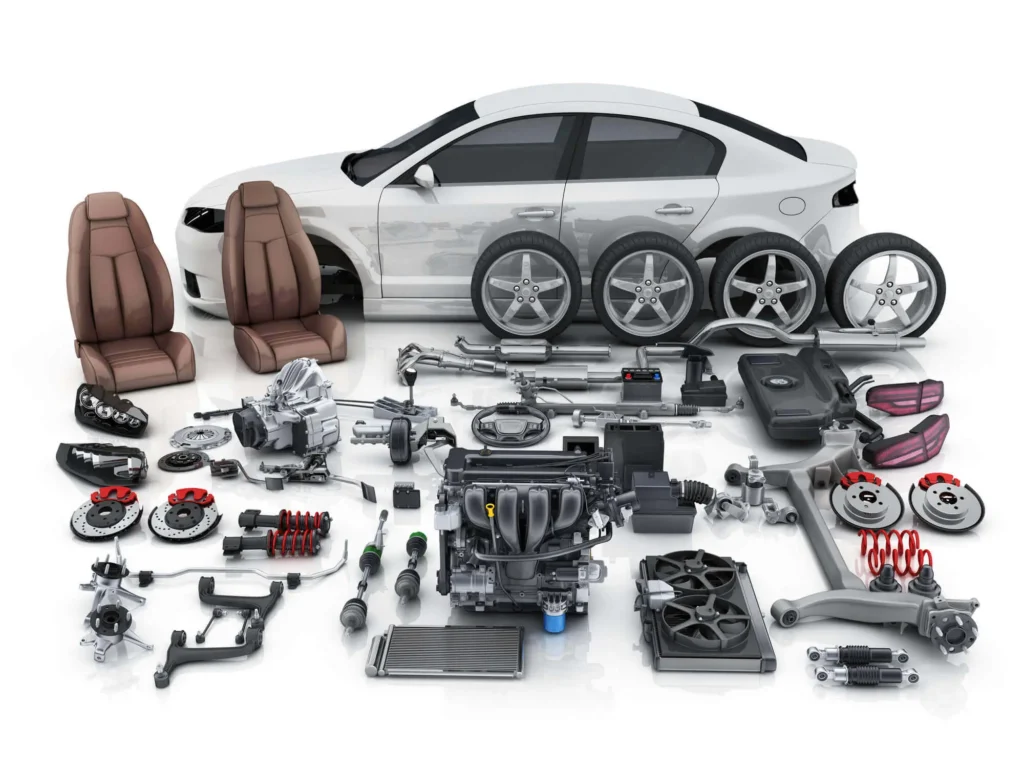
Cost-Effectiveness of Full Container Loads
One of the primary benefits of FCL shipping is its cost-effectiveness. While the initial expense may appear higher when compared to LTL (Less Than Container Load) shipping, FCL often proves to be more economical in the long run. When shipping larger volumes of auto parts, the cost per unit decreases significantly.
| Shipping Method | Cost per Unit | Ideal Shipment Volume |
|---|---|---|
| FCL | Lower | Above 15 CBM |
| LCL | Higher | Below 15 CBM |
The chart above illustrates how FCL becomes the more economical option for larger shipments. Additionally, FCL may reduce handling fees, as the entire container is loaded and unloaded in one go, limiting the number of transitions throughout the shipping process.
Enhanced Security and Reduced Damage Risk
FCL shipping offers enhanced security for auto parts, which is crucial as these items can be expensive and sensitive. When cargo is shipped using FCL, it is contained within a single container that only the shipper or their authorized personnel can access. This exclusivity minimizes the risk of theft or tampering that can occur when items are shipped alongside those from multiple shippers, as is the case with LCL shipments.
Furthermore, the risk of damage during transit is significantly lowered with FCL. Auto parts are often intricately designed and can be easily damaged if not properly secured. With FCL, shippers have greater control over how their goods are packed, allowing them to use custom cushioning and securing methods that are tailored to the specific types of auto parts being transported. This careful handling can lead to lower insurance costs and decreased liability for damages.
Faster Transit Times Compared to LTL
FCL shipping typically results in faster transit times when compared to LTL. When multiple shippers share a container, the logistics become more complicated, as each shipment must be consolidated, loaded, and unloaded separately. This can lead to delays at various points throughout the shipping process, including customs clearance and port handling.
In contrast, FCL shipments generally move directly from the point of origin to the destination port without needing to be consolidated with other cargo. This direct route not only speeds up the overall shipping process but also facilitates predictability in delivery times, which is essential for manufacturers who rely on just-in-time inventory practices.
| Shipping Method | Average Transit Time | Best Usage Scenario |
|---|---|---|
| FCL | 3-4 weeks | Large, urgent orders |
| LCL | 4-6 weeks | Small, non-urgent shipments |
As shown in the table, FCL offers a more expedited service, making it the preferred choice for businesses that need to keep their production lines running smoothly.
Leveraging the advantages of FCL shipping not only enhances operational efficiency for auto parts manufacturers but also contributes to a more reliable supply chain. Dantful International Logistics excels in providing FCL shipping services tailored to the unique needs of the automotive industry, ensuring that your shipments arrive safely, securely, and on time. For a highly professional, cost-effective, and high-quality logistics service, consider Dantful International Logistics for your auto parts shipping needs.
Read More:
- Shipping From China to the United States
- Shipping From China TO CANADA
- Shipping From China To Netherlands
- Shipping From China To UNITED KINGDOM
- Shipping From China To ALGERIA
- Shipping from China to UAE
- Shipping from China to Saudi Arabia
Planning Your FCL Shipment
Key Considerations Before Shipping Auto Parts
When planning a Full Container Load (FCL) shipment for auto parts, several critical factors must be evaluated to ensure a seamless logistics process.
Volume and Weight Assessment
A thorough volume and weight assessment is the foundation of effective FCL shipping. Understanding the dimensions and weight of the auto parts being shipped is crucial in determining the type of container required. Overloading or underutilizing a container can lead to additional costs and logistical complications.
Calculating Volume: Measure the dimensions of each auto part and calculate the total cubic meters (CBM) required for the shipment. This information is essential for selecting the appropriate container size and ensuring that shipping costs are optimized.
Weight Considerations: Each container has a maximum weight limit, which includes the weight of the cargo and the container itself. It is vital to accurately assess the weight of the cargo to avoid penalties and ensure compliance with shipping regulations.
Weight Distribution: Proper weight distribution within the container is also necessary to maintain stability during transport. Unevenly distributed weight can lead to damage or accidents during transit.
Choosing the Right Container Type
Selecting the appropriate container type is essential for protecting auto parts during transit. Common container types for FCL shipping include:
| Container Type | Description | Ideal Use Case |
|---|---|---|
| Standard Dry Container | A general-purpose container for non-perishable goods | Used for most auto parts, including heavy components |
| Refrigerated Container | Temperature-controlled container | Ideal for sensitive auto parts that require specific temperature conditions |
| Open Top Container | Container with an open top and tarpaulin cover | Suitable for oversized auto parts that cannot fit in standard containers |
| Flat Rack Container | Container without sides or a roof | Best for heavy machinery or large equipment |
Choosing the right container not only ensures the safety of the cargo but also complies with shipping regulations.
Developing a Shipment Timeline
Creating a detailed shipment timeline is crucial for effective planning and coordination throughout the shipping process. A structured timeline should include the following stages:
- Preparation: Allocate time for assessing cargo, selecting a container, and packaging auto parts securely.
- Documentation: Ensure that all necessary shipping documents, including the bill of lading, commercial invoice, and packing list, are completed in advance.
- Transport to Port: Plan logistics for transporting the container to the shipping port, including any potential customs clearance processes.
- Shipping Duration: Factor in the estimated transit time based on the destination, which can vary significantly depending on ocean freight schedules and routes.
- Arrival and Customs Clearance: Allow sufficient time for customs clearance and delivery to the final destination.
By outlining each of these phases and establishing clear deadlines, shippers can mitigate delays and enhance overall operational efficiency.
Selecting the Right Freight Forwarder for FCL Shipping
Choosing the correct freight forwarder can have a lasting impact on the success of your FCL shipment. A reliable freight forwarder helps streamline the shipping process and provides valuable expertise in navigating international logistics.
What to Look for in a Freight Forwarder
When evaluating potential freight forwarders for your auto parts shipments, consider the following criteria:
Experience and Expertise: Look for a freight forwarder with a proven track record in handling FCL shipments, particularly within the automotive sector. Their expertise will ensure compliance with industry standards and regulations.
Global Network: A freight forwarder with a robust global network can facilitate smoother international shipping processes, reducing potential bottlenecks and delays.
Customs Clearance Capabilities: Ensure that the freight forwarder has expertise in customs clearance to minimize the risk of delays and additional fees related to documentation and compliance.
Insurance Options: Look for freight forwarders that offer comprehensive insurance services to protect your auto parts against damage or loss during transit.
Customer Service: A responsive and knowledgeable customer service team is essential for addressing any issues that may arise during the shipping process.
Questions to Ask Potential Freight Partners
When interviewing potential freight forwarders, asking the right questions can help you gauge their suitability for your FCL shipping needs. Consider asking:
What is your experience with shipping auto parts specifically?
- This question assesses their expertise and familiarity with the nuances involved in transporting automotive components.
Can you provide references or case studies of similar shipments?
- Reviewing past performance with similar clients can give you insights into their reliability and service quality.
How do you handle customs clearance and documentation?
- Understanding their approach to customs can help you evaluate how they mitigate risks during the shipping process.
What are your insurance options, and how do you handle claims?
- Knowing the insurance policy details and claims process can provide peace of mind regarding potential risks.
What technology or systems do you use for tracking shipments?
- Technology can enhance transparency and allow for real-time monitoring of your cargo, which is essential for timely delivery.
By carefully considering the above factors in planning your FCL shipment and selecting the right freight forwarder, you can ensure a successful transportation experience for your auto parts. For businesses seeking a highly professional, cost-effective, and high-quality logistics service provider, Dantful International Logistics stands ready to assist with your FCL shipping needs.
Packaging and Labeling Auto Parts for FCL Shipping
Best Practices for Packaging Auto Parts
Effective packaging is vital in ensuring that auto parts arrive at their destination in perfect condition. The right packaging not only protects the items during transit but also facilitates easier handling and storage. Here are some best practices for packaging auto parts for FCL shipping:
Use Durable Materials: Utilize high-quality packaging materials such as heavy-duty cardboard boxes, shrink wrap, and bubble wrap. This helps protect the auto parts from impacts, vibrations, and environmental factors during transit.
Custom Inserts: For delicate or irregularly shaped auto parts, consider creating custom inserts or using foam padding. This prevents movement within the container, minimizing the risk of damage.
Sealing and Strapping: Seal packages securely using strong packing tape and consider adding strapping for heavier items to ensure they remain intact during shipping. This extra layer of security can prevent packages from bursting open.
Stacking and Weight Distribution: When packing parts for the container, distribute the weight evenly. Heavier parts should be placed at the bottom, while lighter items can be stacked on top. This arrangement prevents shifting and enhances stability during transit.
Environmental Considerations: Opt for sustainable packaging materials wherever possible. This not only showcases corporate responsibility but also may prove beneficial in regions with strict environmental regulations.
Test Packaging: Before finalizing the packaging methods, conduct tests to ensure that the materials and techniques used withstand the conditions expected during shipping. This may include drop tests, vibration tests, or exposure to environmental elements.
Importance of Proper Labeling
Proper labeling is integral to the FCL shipping process, serving multiple purposes that facilitate the effective movement of auto parts. Here’s why it is essential:
Identification: Clear labels allow for easy identification of contents, making it simpler for handlers and customs officials to assess and process the shipment. This clarity reduces the chances of mishandling and errors.
Hazard Communication: If any auto parts pose hazards (e.g., fragile items or components containing chemicals), proper labeling provides necessary warnings to handlers. This enhances safety and mitigates risks associated with transportation.
Tracking and Management: Labeling with barcodes or QR codes can streamline the tracking process, enabling both shippers and recipients to monitor the shipment in real-time. This transparency helps in managing logistics efficiently.
Compliance with Regulations: Adhering to international labeling regulations is crucial for customs clearance. Proper documentation and labeling ensure compliance, preventing delays and potential fines.
Inventory Management: Accurate labeling aids in inventory control once the items arrive at their destination. This simplifies the process of receiving goods and ensures that the right parts are delivered to the correct location.
Streamlined Customs Process: Well-labeled packages facilitate a smoother customs process, as customs officials can quickly verify contents and documentation. This can reduce the likelihood of inspections and expedite clearance.
Common Challenges in FCL Auto Parts Shipping
Addressing Customs Regulations and Compliance
Shipping auto parts internationally involves navigating complex customs regulations, which can pose significant challenges. Understanding these regulations is essential for avoiding delays and ensuring compliance:
Documentation Requirements: Each country has specific documentation needed for customs clearance, including bills of lading, invoices, and packing lists. Failure to provide complete or accurate documentation can lead to customs delays.
Tariffs and Duties: Be aware of the tariffs and duties applicable to the auto parts being shipped. Understanding these costs upfront can prevent unexpected expenses that impact profitability.
Restricted Items: Some auto parts may be subject to restrictions or prohibitions, depending on the destination country. Familiarizing yourself with these regulations can save time and resources in the shipping process.
Import Licenses: Some countries require import licenses for certain auto parts. Researching and obtaining these licenses well in advance can prevent delays during customs clearance.
Customs Brokers: Engaging a knowledgeable customs broker can simplify the process, as they possess expertise in handling documentation and compliance issues specific to auto parts shipping.
Managing Delays and Unexpected Issues
Delays and unexpected issues are common challenges in the logistics industry, particularly for FCL shipping. Proactive management can help mitigate their impact:
Contingency Planning: Develop contingency plans to address potential delays, such as unexpected weather conditions, port congestion, or changes in shipping schedules. Having backup strategies in place ensures that your operations can adapt quickly.
Real-Time Communication: Maintain open lines of communication with your freight forwarder and logistics partners. Real-time updates on shipment status can help you address issues as they arise, allowing for quicker resolutions.
Flexibility with Timelines: Build flexibility into your shipping timelines to accommodate potential delays. Allowing for extra time can help manage expectations and reduce stress in your operations.
Insurance Options: Consider purchasing comprehensive cargo insurance to protect against unforeseen circumstances that may result in loss or damage. Understanding the terms and coverage options can provide peace of mind.
Monitor Performance: Implement metrics to monitor shipping performance and identify patterns in delays or issues. Analyzing this data can help refine processes and improve overall efficiency in future shipments.
Supplier Relationships: Strengthening relationships with suppliers can facilitate better communication and responsiveness. Collaborative problem-solving can expedite resolutions when unexpected issues occur.
By focusing on effective packaging and labeling practices, navigating customs regulations, and proactively managing potential challenges, businesses can significantly enhance the efficiency of their FCL shipping for auto parts. Dantful International Logistics offers expert guidance in these areas, providing a comprehensive logistics solution tailored to your needs. For a professional, reliable, and high-quality shipping experience, trust Dantful International Logistics to handle your auto parts shipping requirements.

Young Chiu is a seasoned logistics expert with over 15 years of experience in international freight forwarding and supply chain management. As CEO of Dantful International Logistics, Young is dedicated to providing valuable insights and practical advice to businesses navigating the complexities of global shipping.





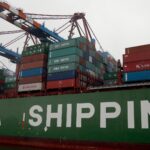


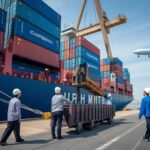
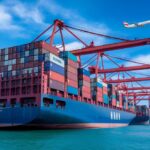
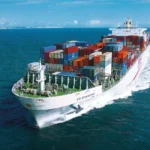
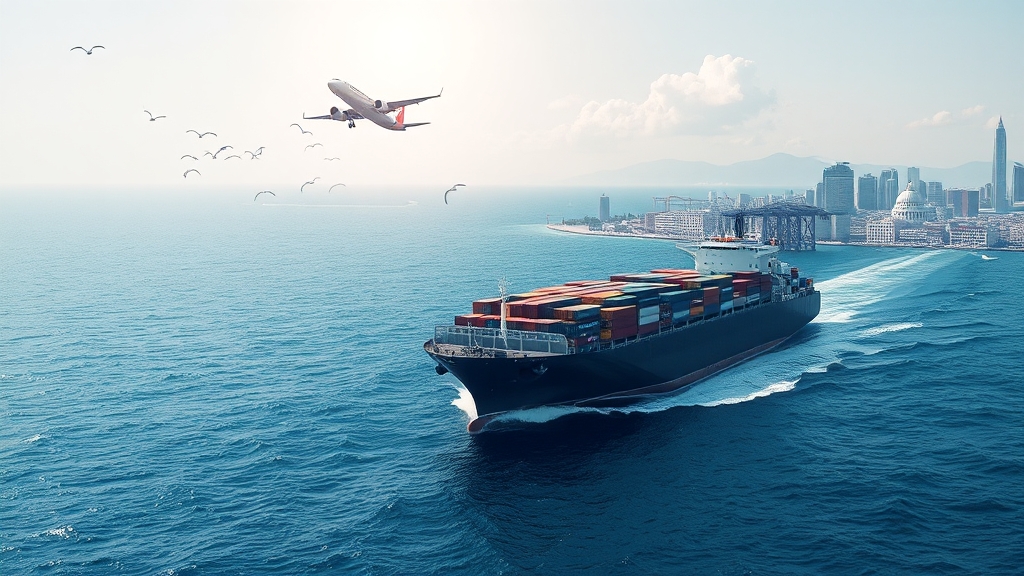
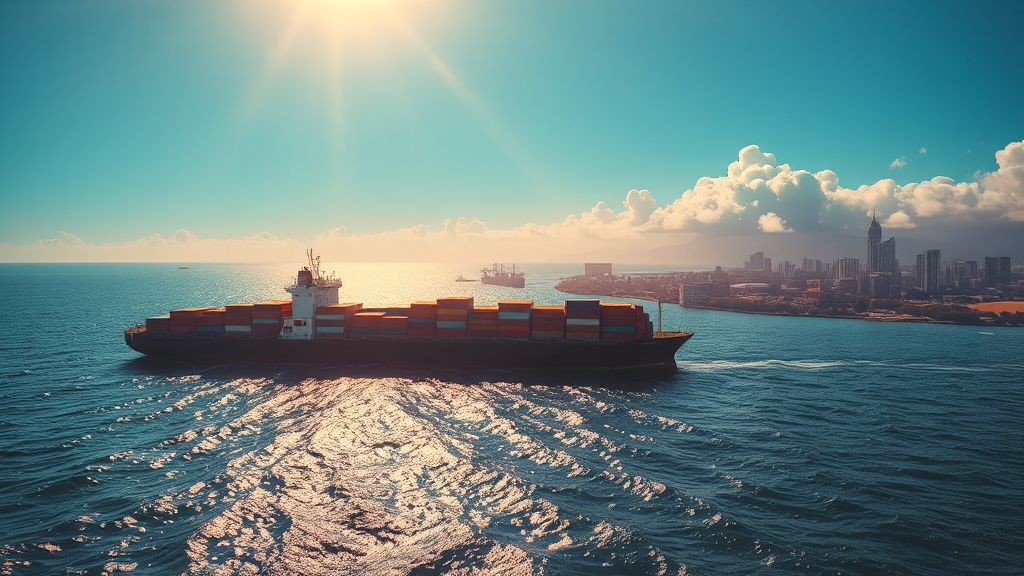
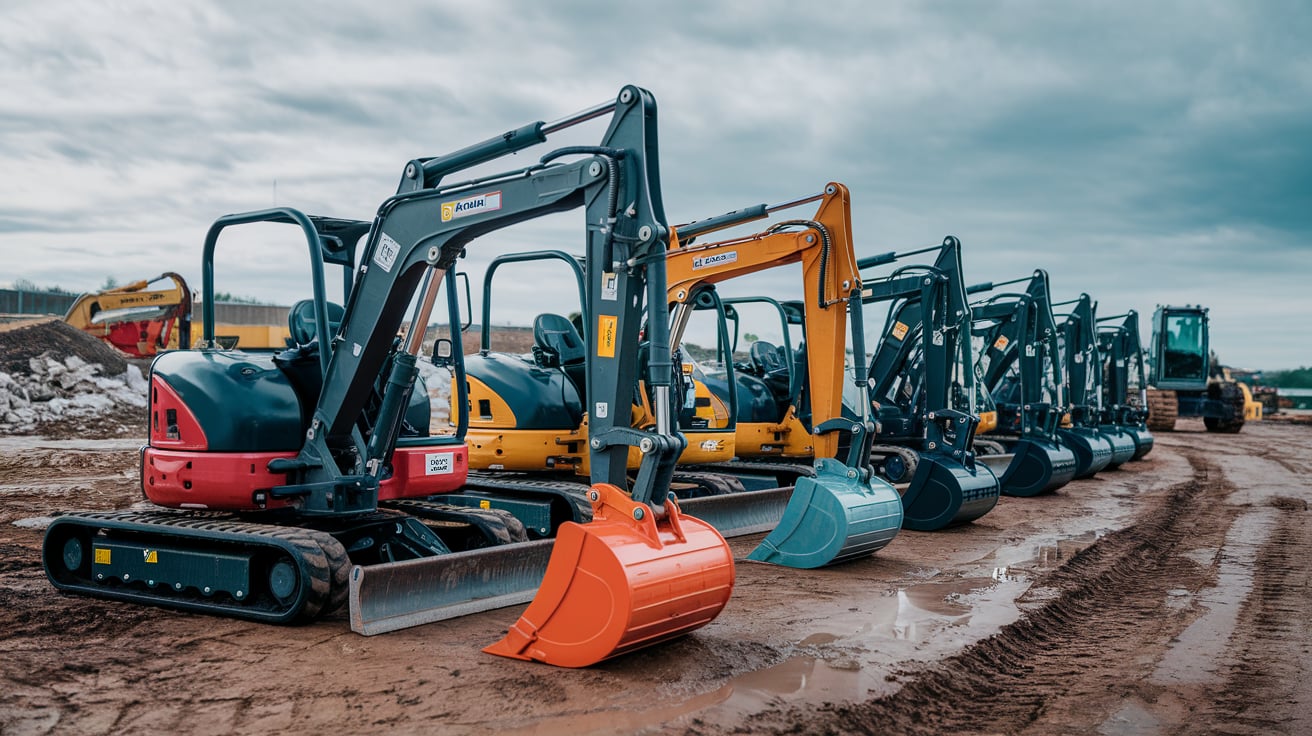
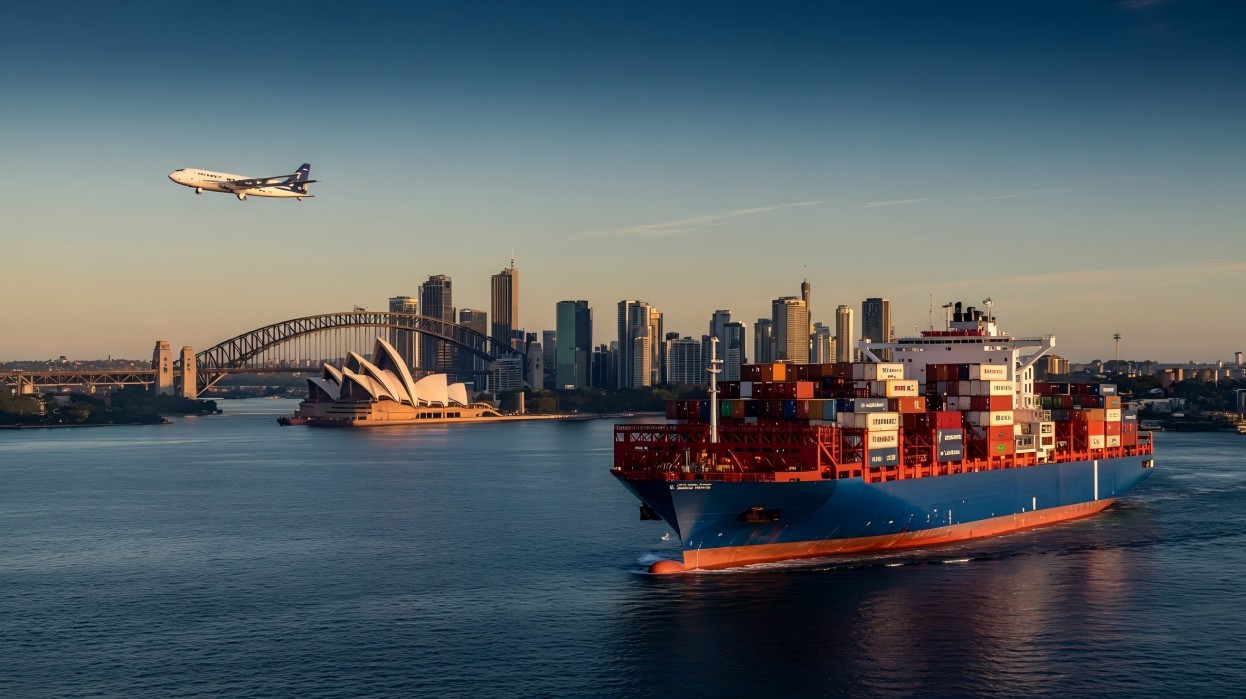
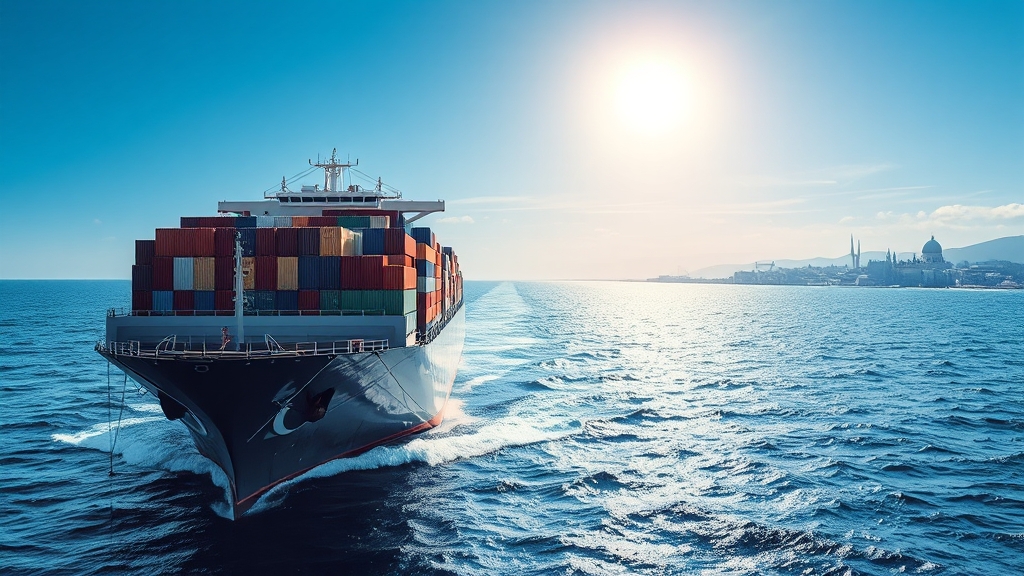





 Afrikaans
Afrikaans Shqip
Shqip አማርኛ
አማርኛ العربية
العربية Հայերեն
Հայերեն Azərbaycan dili
Azərbaycan dili Euskara
Euskara Беларуская мова
Беларуская мова বাংলা
বাংলা Bosanski
Bosanski Български
Български Català
Català Cebuano
Cebuano Chichewa
Chichewa 简体中文
简体中文 繁體中文
繁體中文 Corsu
Corsu Hrvatski
Hrvatski Čeština
Čeština Dansk
Dansk Nederlands
Nederlands English
English Esperanto
Esperanto Eesti
Eesti Filipino
Filipino Suomi
Suomi Français
Français Galego
Galego ქართული
ქართული Deutsch
Deutsch Ελληνικά
Ελληνικά Kreyol ayisyen
Kreyol ayisyen Harshen Hausa
Harshen Hausa Ōlelo Hawaiʻi
Ōlelo Hawaiʻi עִבְרִית
עִבְרִית हिन्दी
हिन्दी Hmong
Hmong Magyar
Magyar Íslenska
Íslenska Igbo
Igbo Bahasa Indonesia
Bahasa Indonesia Gaeilge
Gaeilge Italiano
Italiano 日本語
日本語 Basa Jawa
Basa Jawa ಕನ್ನಡ
ಕನ್ನಡ Қазақ тілі
Қазақ тілі ភាសាខ្មែរ
ភាសាខ្មែរ 한국어
한국어 كوردی
كوردی Кыргызча
Кыргызча ພາສາລາວ
ພາສາລາວ Latin
Latin Latviešu valoda
Latviešu valoda Lietuvių kalba
Lietuvių kalba Lëtzebuergesch
Lëtzebuergesch Македонски јазик
Македонски јазик Malagasy
Malagasy Bahasa Melayu
Bahasa Melayu മലയാളം
മലയാളം Maltese
Maltese Te Reo Māori
Te Reo Māori मराठी
मराठी Монгол
Монгол ဗမာစာ
ဗမာစာ नेपाली
नेपाली Norsk bokmål
Norsk bokmål پښتو
پښتو فارسی
فارسی Polski
Polski Português
Português ਪੰਜਾਬੀ
ਪੰਜਾਬੀ Română
Română Русский
Русский Samoan
Samoan Gàidhlig
Gàidhlig Српски језик
Српски језик Sesotho
Sesotho Shona
Shona سنڌي
سنڌي සිංහල
සිංහල Slovenčina
Slovenčina Slovenščina
Slovenščina Afsoomaali
Afsoomaali Español
Español Basa Sunda
Basa Sunda Kiswahili
Kiswahili Svenska
Svenska Тоҷикӣ
Тоҷикӣ தமிழ்
தமிழ் తెలుగు
తెలుగు ไทย
ไทย Türkçe
Türkçe Українська
Українська اردو
اردو O‘zbekcha
O‘zbekcha Tiếng Việt
Tiếng Việt Cymraeg
Cymraeg יידיש
יידיש Yorùbá
Yorùbá Zulu
Zulu